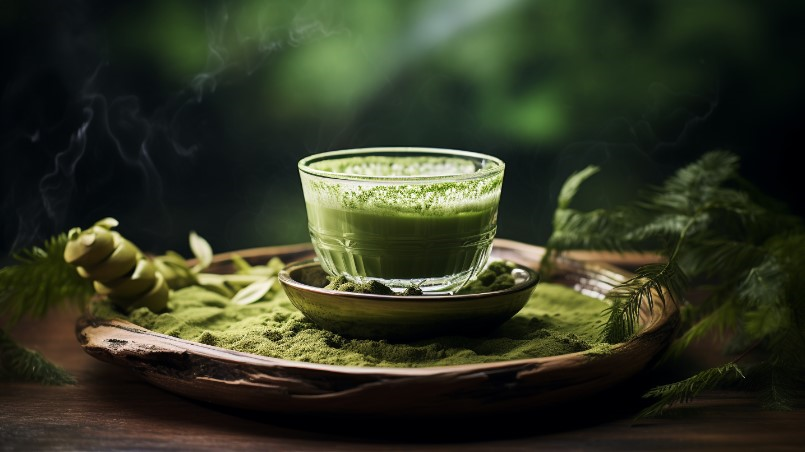Apa sebenarnya bubuk matcha itu

Bubuk matcha, this term full of Oriental charm, has gradually become popular in tea drinking, baking and other fields in recent years. With its unique green color, rich tea aroma and delicate taste, it has attracted more and more people. So, what exactly is matcha powder? Is there any connection with tea?
For matcha powder and tea, it should be clear that there is a close relationship between matcha powder and tea, in fact, matcha powder is a powdered tea product processed by special technology with high-quality green tea as raw materials. In other words, matcha powder is a processed form of tea, and its raw materials come from tea. This raw material choice determines that matcha powder is inextricably linked to tea in terms of quality, taste and nutritional value.
Meskipun matcha powder and tea are of the same origin, the production process between them is very different. The production process of ordinary tea mainly includes picking, killing, rolling and drying steps, while the production of matcha powder is more elaborate and complex. First, the leaves of the matcha tea tree need to be covered for shading to reduce direct light and promote the accumulation of chlorophyll, theanine and other substances in the tender tea. After picking, it is also necessary to go through multiple processes such as steaming, drying, rough cutting, and fine grinding, especially the final grinding process, which requires low efficiency grinding with stone mills to retain the color and nutrition of matcha tea. This special preparation process gives matcha powder its unique taste and quality.
In terms of quality characteristics, there are also significant differences between them. Matcha powder has a unique green color and delicate taste, almost no bitterness, but with a nori similar fragrance. And tea, especially green tea, although also rich in nutrition, but the taste may have a certain bitter taste. This is because during the production of matcha tea, the growing period of the tea leaves is prolonged, reducing the bitter tea polyphenol content, while increasing the chlorophyll and amino acid content.
There are also differences in use. Matcha powder is mainly used in tea drinking and baking, can be drunk directly with water, or can be added as an ingredient to a variety of cuisines. Tea is mainly brewed and drunk to enjoy its unique tea aroma and taste. Matcha powder is also usually more expensive than tea. This is because the process of making matcha tea is more complex and elaborate, and the cost is relatively high.
To sum up, although matcha powder and tea are closely related, there are still differences. In the purchase and use, we can according to their own needs and preferences, choose their own products. It is also necessary to strengthen the understanding of matcha powder and tea to avoid confusing them.
Backvita
